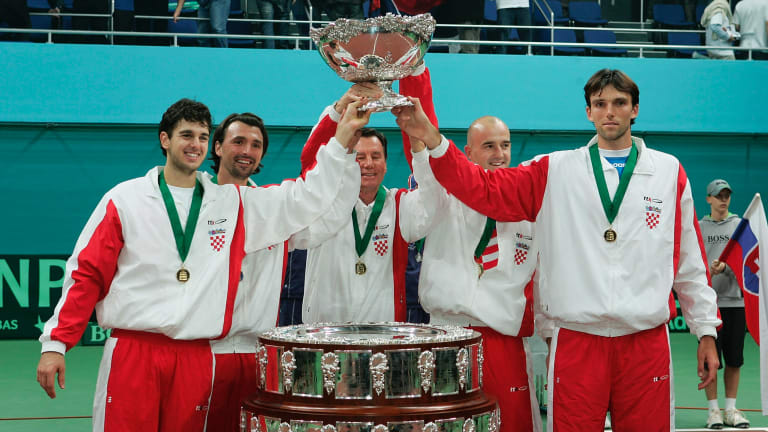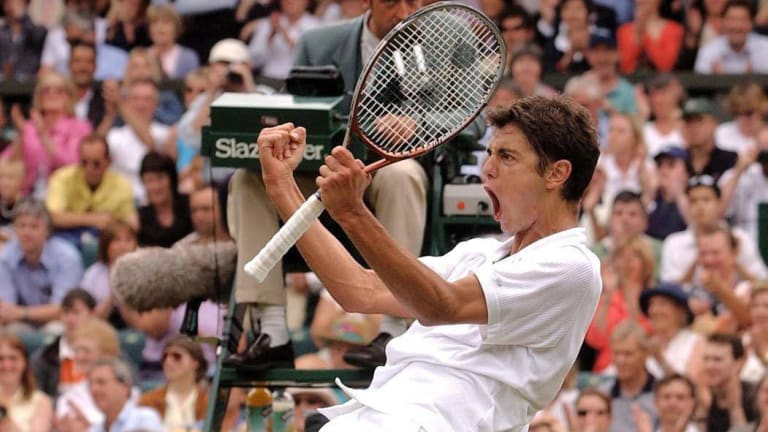In February 2011, Mario Ancic hung up his tennis racquets at the age of 26 when a string of injuries and illnesses ultimately proved insurmountable. Adept at serve-and-volleying, Ancic translated that tactic into hitting the books, eyeing another ambitious world that eventually landed him on Wall Street. Ten years later, the former world No. 7's second act has proven as joyful as his first, all while staying connected to tennis as a hitting partner, coaching consultant, open line of communication and entrepreneur through FanSlam, a fantasy platform he co-founded.
In our latest TENNIS Conversation, Ancic opens up about his past decade, excitement for the upcoming Wimbledon Championships, The Big Three, and what tennis should do to stand out in a sea of other sports.
It’s hard to believe a little more than a decade has passed since you retired from professional tennis. To start, can you reflect on going through that process and the way you see it now?
ANCIC: First of all, sports has been and still is a huge part of my life. Even now, there's not a single day where I don't work out, when I don't exercise. That has been with me since I was a kid. So from that perspective, nothing really changed. Sometimes people are asking me, "Why are you still training so hard?", "Why do you cycle over the weekend?", or "Why do you go to the gym every day?" Being an athlete is also a lifestyle.
From a perspective of being competitive, everything changed. I won an Olympic bronze medal when I was 20, and won a Davis Cup, reached Top 10 when I was like 21. In hindsight, we've seen where the tennis went. You see people now. Roger is couple of years older than me. Feliciano Lopez won Queen’s two years ago. And with Novak and Rafa, what these guys are doing in their mid 30s is incredible. You see that one’s prime has been shifted now to 28, 29 30. Being able at such a young age to have extraordinary results, it's been a dream come true. And then, from one day to another, my life as it was came crashing down.
I spent a couple of years then rehabbing and trying to come back, but end of the day, I had to be real with myself and said, it's not possible to be at that level. And you got to make a tough decision. Whether you want to fool yourself and try to run around couple of years. If you're not able to train every day between six and eight hours a day, then you can't expect results. Everybody who knew me knew I was one of the hardest working guys on tour and extremely dedicated to the game, and understood the reason why I couldn't do it anymore was due to my health issues and then later injuries.

